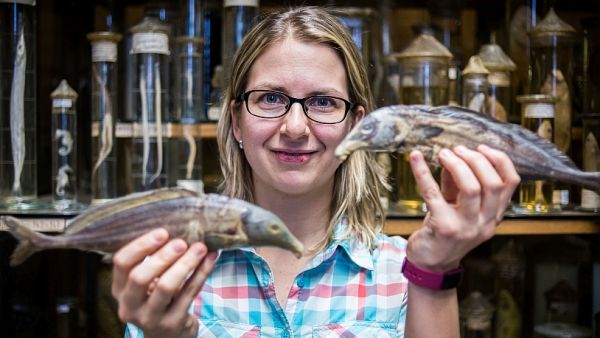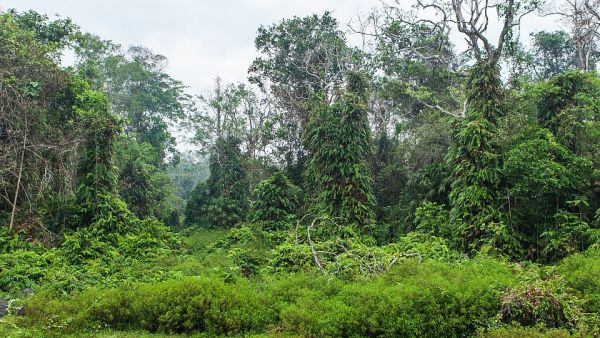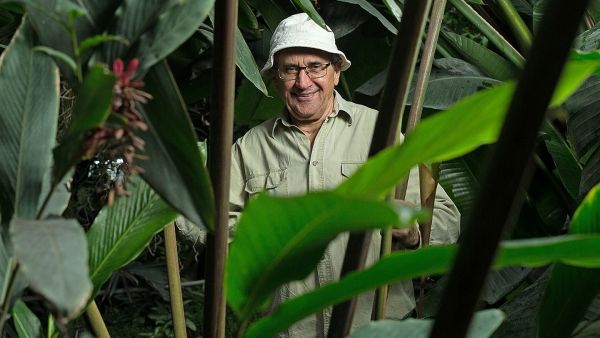Displaying items by tag: research
The Church of St. Bartholomew in Kolín is a national cultural monument and for good reason. It is one of the most impressive examples of Gothic architecture in Central Bohemia. Among the church’s many gems are extraordinary stained glass windows. These caught Anna Bartoňová's eye.; she is a student at the Catholic Theological Faculty.
In the latest of #deeptalk series of the podcast Steppin Into Asia Petr Jandáček interviews Sigurður Gylfi Magnússon, professor of cultural history and renowned microhistorian. Sigurður Gylfi talks about his studies at Carnegie Mellon University, his first published book, his first article and his years as an independent researcher.
Charles University recently launched its new discovery service, UKAŽ, facilitating the simultaneous and smooth search of printed, digitised and electronic resources. The system was a complete redesign of its forerunner, integrating the catalogues of more than 60 CU libraries. Searching for books has never been more convenient.
Thomas F. Babor is a renowned researcher and professor of Public Health Studies at the University of Connecticut and author of more than 15 books. In the late 1980s, Prof. Babor was one of the main scientists involved in the creation of AUDIT for WHO. This week he received an honorary degree from Charles University.
Ten Czech scientists, in two main categories, received Neuron Awards on Tuesday at a gala ceremony at Prague’s National Museum. Three received the award for their lifelong contribution to science, while seven awards went to young researchers. Eight recipients have ties with, or work at, Charles University.
Destination: Prague – A Fulbright scholar's journey
Tracy Okine, an American Ph.D. student and Fulbright scholar, began her scientific and cultural exchange in the Czech Republic in January of this year, in the midst of the third wave. In Forum, she writes about what inspired her to conduct research in Prague.
“Genetic testing makes sense in combination with other biochemical markers and various sensors for individual training. But there is no way it should lead to conclusions such as if you don’t have a sprinter’s genes, give up running,” says Associate Professor Miroslav Petr from the Faculty of Physical Education and Sports.
“We expected the biggest changes in vegetation to be at the end of the Ice Age. Instead, we were surprised they were in the last four thousand years," says paleoecologist Petr Kuneš of the Faculty of Science. Kuneš and fellow experts' findings were published in the prestigious scientific journal Science.
Charles University saw important changes over the last year-and-a-half, among them the relocation of student/employee services, CU Point, to Celetná 13. It is a central hub including the CU Staff Welcome Centre, helping foreign researchers with work stays.
Last month, the rectors of the 4EU+ Alliance established a new legal entity. The association, based in Heidelberg, aims to strengthen cooperation among all six member universities, says Charles University’s Vice-Rector for European Affairs Lenka Rovná.
In jest, he says that a recent Amazon exhibition in Prague’s Carolinum came together only by accident, after he came across a box containing Peru’s highest state honour while cleaning up. Back in 2007, Charles University’s Bohumír Janský became the first foreigner to receive the honour.
Look who's listening: How babies learn languages
Kateřina Chládková is one of the few researchers in the world who study the earliest stages of language acquisition, which means she is often in contact with babies – even in the maternity ward. Her aim is to find out how we learn to speak from the very first moments of life.


























